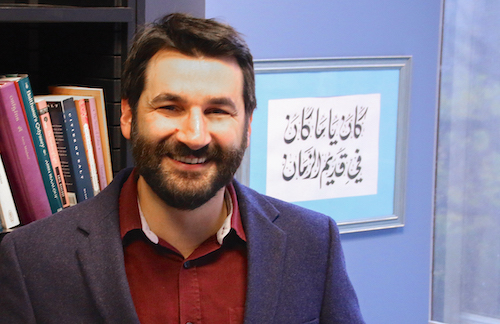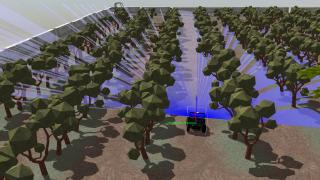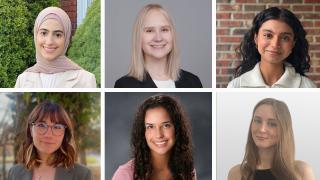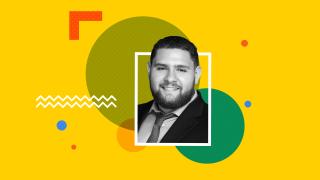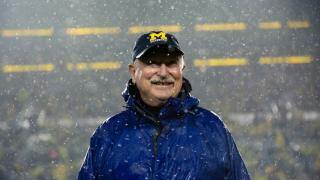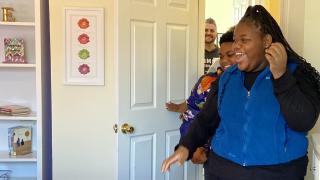
Before moving to Dearborn, Ghassan Abou-Zeineddine researched the cultural diversity of the community. But the College of Arts, Sciences, and Letters faculty member didn’t realize how unique the Southeastern Michigan area was until living here.
He sees men and women gathered on the porches of East Dearborn homes for tea like he remembers seeing in Beirut. The Shatila Bakery his family would order from for their celebrations is now right down the street. And there was the time he gave his Lebanese name to a front desk Dearborn hotel clerk, and Abou-Zeineddine didn’t get a confused look.
“I was getting ready to spell it slowly and acknowledge how long it was, and the man repeated it back to me in Arabic. He looked up my name without hesitation. I had never had that happen in the U.S. before,” says Abou-Zeineddine, who taught at a liberal arts college in Ohio before coming to UM-Dearborn in 2018. “I taught an Arab American literature course prior to moving here and would include slides of Dearborn — a place we all know as the Arab capital of the U.S. — but you have to meet the people to truly understand how wonderfully unique it is.”
The creative writing professor realizes not everyone can do that. So he’s gathering creative nonfiction essays — in photograph and written form — to share with others on what it’s like to live in the local Arab American community for a future book.
“Voices of Arab Detroit: Narratives of Boundaries and Belonging” is a project he’s working on with Center for Arab American Studies Director Sally Howell and noted Arab American researcher Nabeel Abraham. Abou-Zeineddine says there’s a wide variety of topics covered in the collected essays.
During the College of Arts, Sciences, and Letters Research SLAM he presented at last week, Abou-Zeineddine says the works don’t only talk about the positive aspects of the Arab American community; they also bring up taboo topics. Those include Arab Americans who identify as queer and are afraid of familial rejection, people who are pressured to follow traditional family paths and are considering a different direction, and women who talk openly about violence they’ve experienced in their homes.
“I’m impressed with the courage shown by the people who have stepped forward to tell their stories and let people in the community who are experiencing this to know that they are not alone. These are topics not typically discussed openly,” he says. “Speaking critically of issues in the Arab American community, in my opinion, shows love for it. It shows you want what’s best for your community and for the serious issues to be rectified.”
Adding to the burgeoning field of Arab American literature, the nonfiction essay project has a planned spring 2021 publication date with Wayne State University Press. And Abou-Zeineddine says he’s looking forward to sharing the voices of the people in his new community.
“I wanted to come to Dearborn because I knew it was a once in a lifetime opportunity. And now I have the good fortune to work on a project that shares what it’s like to live in this community — from the people who live here — with others.”

